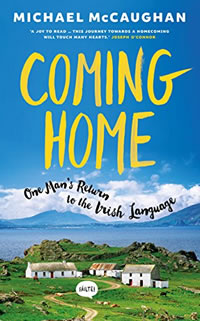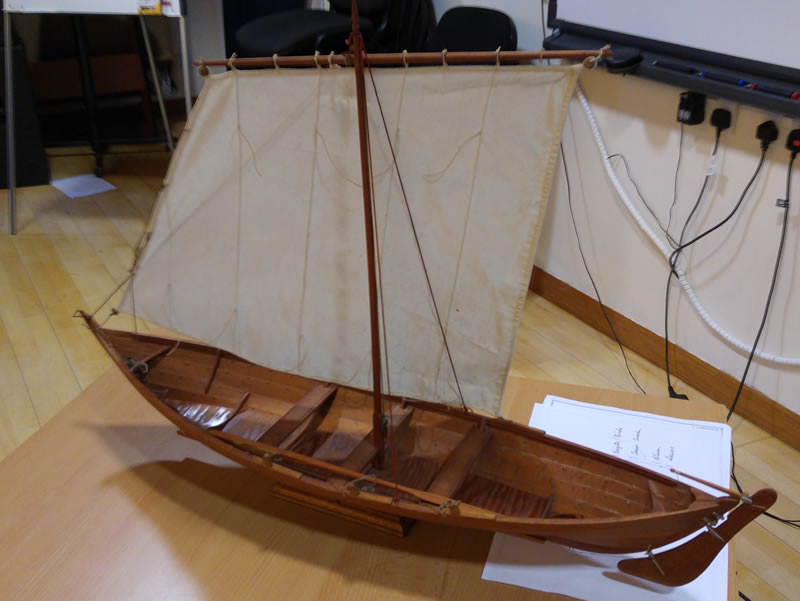
Here’s a recording in a mystery language.
Can you identify the language, and do you know where it’s spoken?

Here’s a recording in a mystery language.
Can you identify the language, and do you know where it’s spoken?
I’ve been studying Russian, Swedish and Romanian with Duolingo for the past four months using the app on my phone. I knew you could also study online, but have only just discovered that the online version includes notes on grammar. These are very helpful, and I’ll be going through them all.
The notes don’t appear to be included in the app, as far as I can see, unless I’ve missed something. Sometimes it can be tricky to work out grammatical patterns from the examples. It will be easier now with the notes.
I’m doing an experiment to see how much of these languages I can learn just from Duolingo. I have learnt some Russian and Swedish from other courses, but so far Duolingo is the only course I’ve used for Romanian. If I continue studying every day, at my current rate of progress I should complete the courses in another year or so.
Have you learned any languages just from Duolingo?

While I was in Ireland last month I went to an interesting talk by Michael McCaughan at which he launched his book, Coming Home: One man’s return to the Irish Language.
I have just finished reading the book, and found it very interesting. Although he had to study Irish in school, like everybody else in Ireland, he wasn’t able to speak the language after finishing school. While working as a journalist in South America, he was often asked about the Irish language when people found out he was from Ireland, and he became ashamed that he couldn’t speak it, apart from odd phrases. He became determind to master Irish, and wrote the book about his Irish learning adventures, and also about the history and current state of the language.
He discusses the challenges of learning a minority language, including finding people to talk to, and pursuading native speakers to speak Irish to you, even though it is often easier them to switch to English, unless you’re very fluent. He talks about the growth of Irish in Northern Ireland in both Catholic and Protestant communities, where there is a real hunger for the language. People there don’t let minor things like lack of funds or official permission stop them from setting up schools, radio stations and other things.
If you have any interest in the Irish language and/or Ireland, this book is worth reading.
A friend of mine has a similar story: she grew up in Wales but had no interest in learning Welsh at school. After learning school, she went travelling in Eastern Europe, and was often asked about Wales and the Welsh language when people found out where she was from. She became determined to learn Welsh, and in less then a year, during which time she studied Welsh everyday, and shared a flat with native Welsh speakers, she was more or less fluent. She won the Welsh Learner of the Year competition in 2008, and went on to do a degree in Celtic Studies at Aberystwyth University.
In order to appreciate your own language and culture, is it necessary to spend time in other countries?

Here’s a recording in a mystery language.
Can you identify the language, and do you know where it’s spoken?
My song course has now finished, and I’ll be heading home tomorrow. I’ve learnt a lot of interesting and beautiful Gaelic songs this week, and had a great time. There were some excellent concerts in the evenings, and an end-of-course cèilidh last night, at which each class performed their party piece (a song or two), then there was music, dancing and more singing.
The theme of the course was songs related to the sea. This included songs about boats, sailors, smuggling, rowing, emigration, and other sea-related themes.
There are various expressions in Scottish Gaelic related to the sea:
– muir [murʲ] = the sea. From the Old Irish muir (sea), from the Proto-Celtic *mori (sea), from the Proto-Indo-European *móri (sea).
– cuan [kuən] = ocean; bay, inlet; haven. From the Old Irish cúan (bay, gulf, harbor), from Proto-Indo-European *kapno-, from *keh₂p- (to grasp).
– fairge [farʲagʲə] = sea, ocean; (sea) swell, turbulence of the ocean. From the Old Irish fairrge (sea, ocean).
– sàl [saːl̪ˠ] = the sea; salt water, seawater. From the Old Irish sál (brine, sea water).
– air sàl = at sea
– muireil = naval, maritime; like a sea
– loingeach [l̪ˠɔiŋʲgʲəx] = nautical

There are also quite a few words in Scottish Gaelic for boats:
– bàta [baːʰdə] = boat, craft. From the Old Irish bát, from Old English bāt (boat), from the Proto-Germanic *baitaz, *baitą (boat, small ship), from the Proto-Indo-European *bʰeyd- (to break, split).
– long [l̪ˠɔuŋg] = ship. From the Latin (navis) longa (long ship).
– sgoth [sgɔh] = boat, skiff, large winter fishing-boat, yacht
– curach [kurəx] = coracle, curragh. From the Middle Irish curach, from the Proto-Celtic *korukos (leather boat), probably from the Proto-Indo-European *(s)koro- (leather).
– coit [kɔhdʲ] = small fishing boat, canoe; cat (cargo boat)
– geòlag [gʲɔːl̪ˠag] = small boat or yawl
– bìrlinn [biːr̪l̪ʲɪn̪ʲ] = galley, rowing barge. From the Old Norse byrðingr (“ship of burden” = cargo ship, merchant vessel). (see photo above)
Sources: Am Faclair Beag, Wiktionary and MacBain’s Dictionary
Here are Joy Dunlop‘s conversation class singing a few Gaelic songs:
A bit of dancing:
A bit of piping:
More photos and videos from this trip, and previous trips to Sabhal Mòr Ostaig.
I made it to Sabhal Mòr Ostaig last night. It started to rain very heavily as the ferry arrived in Armadale. Fortunately there was a bus to the college, but I got rather damp just walking from the ferry to the bus, and from the bus into the college.
So far on this journey I’ve heard quite a few different languages, including German, Lithuanian, Mandarin, French, Spanish and Dutch. I’ve had conversations in English, Scottish Gaelic and Irish, and spoken odd bits of Manx, Swedish, Russian and German.
My Scottish Gaelic is a bit rusty, but it’s coming back, and I fill in any gaps with Irish. On the way hear I listened to an audio book and some songs in Gaelic to tune my ears into the language.

Here’s a recording in a mystery language.
Can you identify the language, and do you know where it’s spoken?
Tha mi ann an Glaschu an-diugh, air an rathad dhan Eilean Sgitheanach. A-màireach bidh mi a’ dol dhan Sabhal Mòr Ostaig, agus a’ cursa ‘Sealladh Mara air Òrain Ghàidhlig‘ ri Maighread Stiùbhart a’ dhèanamh.
I’m in Glasgow today, on the way to the Isle of Skye. Tomorrow I’ll go to Sabhal Mòr Ostaig, the Gaelic college on Skye, to do the course ‘A Seascape of Gaelic Song‘ with Margaret Stewart. Looking forward to it.
This week I’ve been adding videos to some of the language pages on Omniglot. Many of them come from the Wikitongues, and others from the Endangered Languages Alliance or Easy Languages.
If you have suggestions for videos for other languages, do let me know. Ideally I’d like to have one or more on each language page to give a flavour of the language.
It would also be great to have videos in different varieties, accents and dialects. If you know of any good ones, or feel like making one, do let me know.
Here’s one of a guy from Glasgow who talks about different Scottish accents:
Last week I learned that there are quite a few words for roads in Irish. These include:
bóthar [ˈbˠoːhəɾˠ] = road; way, manner. From the Proto-Celtic *bow-itros (cow path).
Related words in other Celtic languages:
– bóthar [boː.ər] = alley, lane (Scottish Gaelic)
– bayr [bajr] = avenue, drive, lane, pad, roadway (Manx)
– beidr [beidɪr] = lane, track (Welsh)
– bownder [‘bɔʊndɛr] = lane (Cornish)
bóithrín = country lane, boreen (diminutive of bóthar)
bealach [ˈbʲalˠəx] = way, road track; pass. From the Old Irish belach (gap, pass, road, path).
Related words in other Celtic languages:
– bealach [bjal̪ˠəx] = pass; access; detour; breach, gap, opening; inlet (Scottish Gaelic)
– bollagh = channel, course, curving uphill road, gap, gorge, lane, passage, route, thoroughfare (Manx)
ród [rˠoːdˠ] = road, highway. From the Old Irish rót (road, highway).
Related words in other Celtic languages:
– rathad [ra.ad] = road, way, route (Scottish Gaelic)
– raad [reːd̪, raːd̪] = avenue, drive, lane, pad, roadway (Manx)
– rhawd [r̥aud] = course, career (Welsh)
– roud = route, trace (Breton)
slí [ʃliː] = way, road, track, route, passage. From the Old Irish slige (gap, pass, road, path).
Related words in other Celtic languages:
– slighe [ʃl̪ʲi.ə] = path, track, trail, way; course, passage, route (Scottish Gaelic)
cosán = path; footway, track; way, passage; direction. From the Old Irish casán (path, footpath), from cás (foot).
Related words in other Celtic languages:
– casan [kasan] = path; supporting beam; treadle; wattle (Scottish Gaelic)
– cassan [keːzən] = passage, path, pathway, sidewalk, thoroughfare; walk, footpath; trajectory (Manx)
cabhsa = causeway; path, lane
sráid [sˠɾˠɑːdʲ] = street; level (surfaced) ground around house; village. From the Old Irish sráit (street, road, path, way), from the Old Norse stræti (street), from Late Latin strāta (a paved road).
Related words in other Celtic languages:
– sràid [sdraːdʲ] = street (Scottish Gaelic)
– straid = street; farmyard; thoroughfare (Manx)
– stryd [striːd] = street (Welsh)
– stret [strɛ:t] = street (Cornish)
– straed = alley, lane (Breton)
Incidentally, the English word road comes from the Middle English rode/rade, from the Old English rād (riding, hostile incursion), from the Proto-Germanic *raidō (a ride), from the Proto-Indo-European *reydʰ- (to ride).
Sources: teanglann.ie, Wiktionary, Fockleyreen, Am Faclair Beag, Dictionnaire Favereau breton, cornish dictionary / gerlyver kernewek